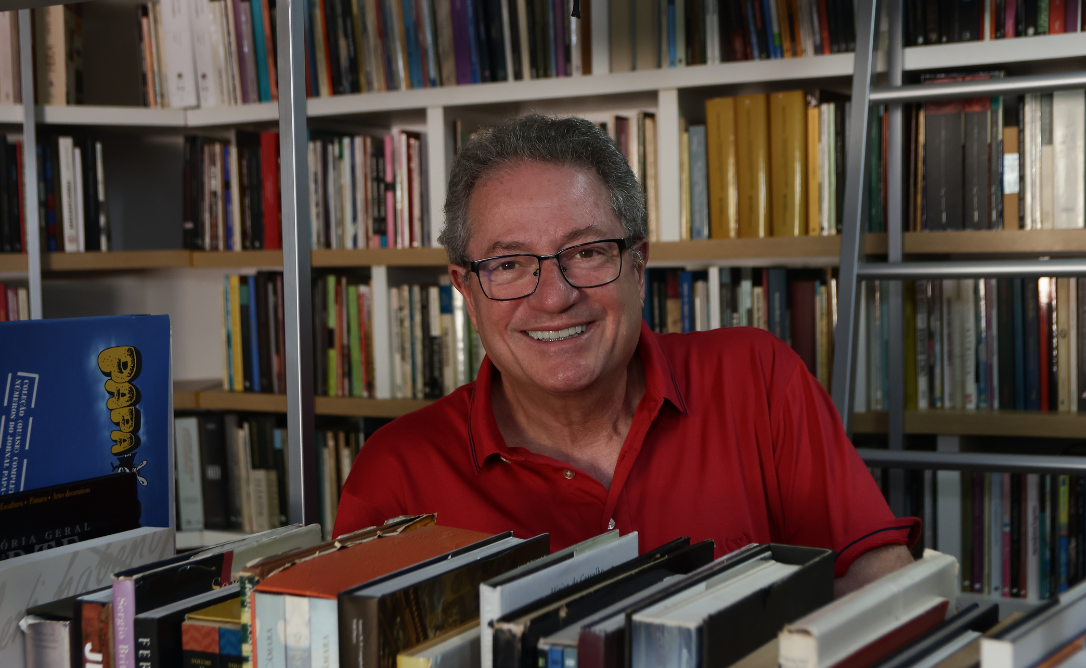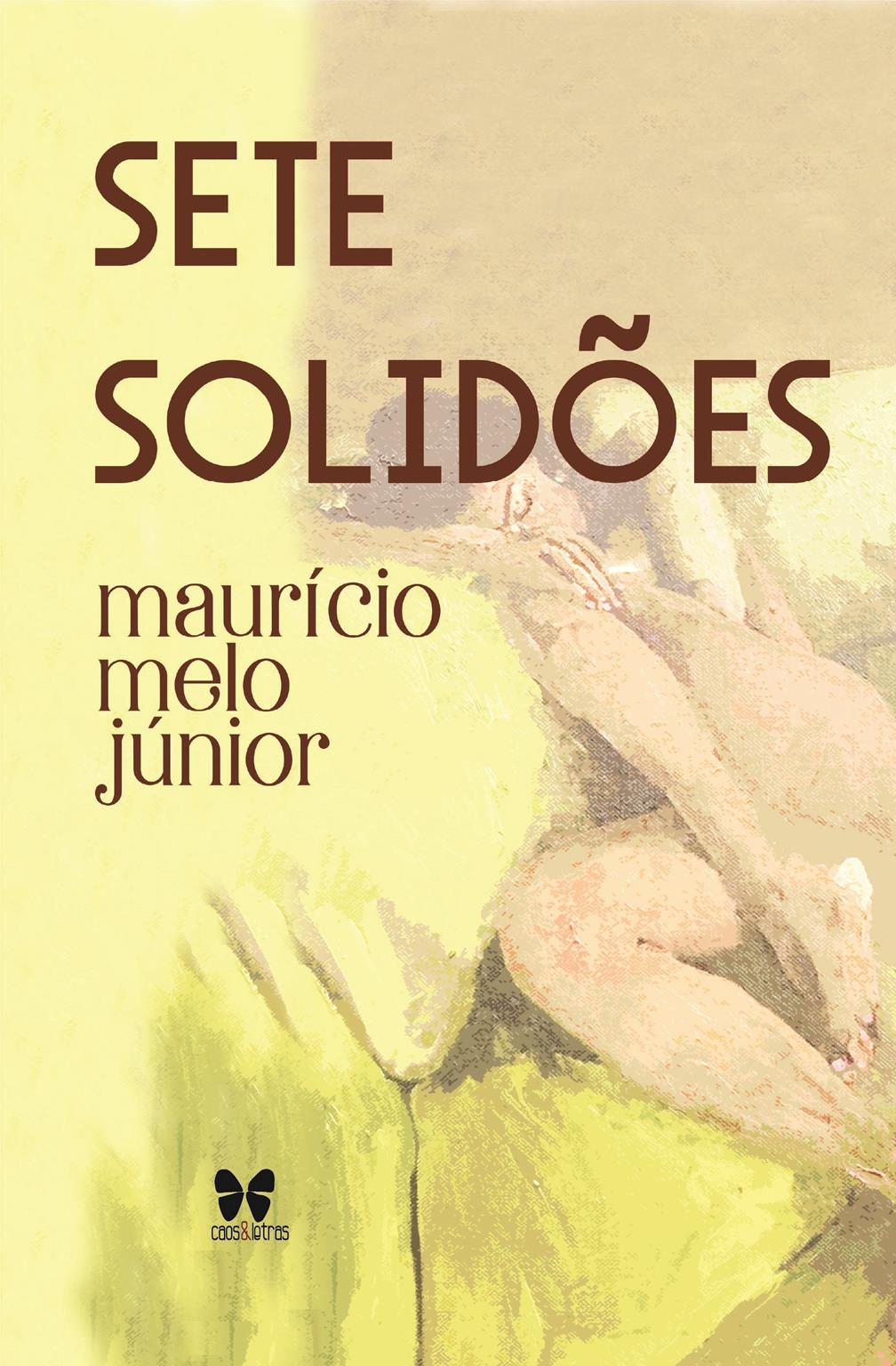
Far from the corridors of power, Brasília is also built on the silences, street corners, and dramas of everyday life. It is in this setting that writer, journalist, and documentary filmmaker Maurício Melo Júnior sets Sete Solitudes, a collection of short stories that portrays characters searching for freedom, affection, and meaning, traversed by intimate tragedies that, though fictional, reflect tangible realities. With psychological depth and social critique, the work repositions the capital in the literary imagination and transforms the ordinary into art.
“Sete Solitudes” portrays a Brasília far from palaces and closer to street corners and silences. What motivated this choice to focus on the everyday, intimate city, rather than the political Brasília everyone knows?
I chose to stray from the commonplace. The Brasília shown on TV is real, of course, but it’s not the only one. Far from the Esplanada dos Ministérios lies a city with a life of its own, a city that enchants me. But it’s worth noting that some of my characters move within the circles of power, or rather, on the periphery of power. And therein lies the foundation of their psychology: walking arm in arm with power without the necessary tools to wield it.
Each story in the book presents a different kind of loneliness. Which of these stories resonates most with you personally—and why?
The truth is that, although all the stories have my DNA—after all, I wrote them—none of them are about me personally. They are solitudes invented from observation of Brasília’s frenetic daily life. And then the city is reborn, normally bustling, but sowing seeds of loneliness in its inhabitants. And loneliness in Brasília has a particularity: people can retreat into individualism by choice, without arousing the curiosity or strangeness of their neighbors.
The work addresses themes such as aging, memory, sexuality, frustrations, and reconnections. How did you balance the emotional depth of these narratives with the elegance and subtlety of the language?
These are the possibilities of literature. I’ve learned, as a reader, that all subjects and themes fit into a work of fiction, and no matter how harsh they may be, they must be treated truthfully, which gives it lightness and, to a certain extent, even poetry. I think of Poe’s short stories, where people are slaughtered, cats are walled up, but all told with so much mystery and certainty that it touches us. As a writer, I seek to touch the sensibilities of others.
The short story “Peste,” set during the pandemic, depicts an attempt at reconnection between siblings. What lessons or reflections has this period brought to your writing?
It was a time of impact. We were isolated and, consequently, almost forced to reflect on that moment. The losses were immense. I lost friends, of course, but also idols, like Aldir Blanc and Sérgio Sant’Anna. This gave me a sense of finitude and the need to plant legacies. So I decided to talk about this unusual and sad time. In the text I wrote, I sought another possibility from that moment: the reconnection between people who love each other. I learned that there can be hope even in the face of the abyss. My characters rediscover tenderness amidst the chaos.

In “Pact,” a woman discovers her sister-in-law’s sexual freedom through a diary. What reflections did you seek to provoke by exploring this contrast between repression and female freedom?
I sought to reflect on the pragmatism that emerged in the world, especially since the 1990s, when the soap opera is set. That was a time of transition in values, where success, achieved no matter how, justified actions. It was a time of breaking taboos and creating new paradigms. There’s also the issue of pleasure. There’s a touch of hedonism in both characters, who choose pleasure as a way to find happiness. And happiness, I believe, is the foundation of all freedom.
You mentioned a desire to reposition Brasília in the literary imagination. What Brasília do you believe remains to be told in Brazilian literature?
Like every city, Brasília is a complex being. And this complexity manifests itself in countless ways. Much is said about Brasília’s rock, but here there is a profound expression of other rhythms, such as the ballads known as sertanejas, choro, and forró. People speak of a politically peaceful city, but the student and union movements defined the city’s institutional direction. All of this can generate good literature. Almeida Fischer wrote a scientific novel about a brain transplant—The Lost Face—set in Brasília in the 1960s, and our still-futuristic architecture can spawn utopian songs. João Almino explored the intense mysticism surrounding the city, but there’s still plenty to explore there. These are themes, ultimately, that are available to fiction writers, such as the epic of the city’s construction, which has yet to merit a fictional account worthy of its immense feat.
As a journalist and host of a literature program, you’re always in contact with new narratives. How does this constant interaction with authors and books influence (or challenge) your own writing?
I often joke that I’m influenced by everything I read, even medication labels. And since I need to read constantly—which I greatly enjoy—I’m constantly learning from this exercise. Even to pursue new paths. I like to go against the grain, after all. Currently, Brazilian literature is heavily focused on identity issues. Since I have little to say on the subject, I turn to other equally disturbing themes—like the dialogue between history and the present—and this certainly reflects in my writing. These are my challenges today, but tomorrow they may be different.
When writing “Seven Solitudes,” what did you discover about loneliness — whether that of your characters or your own as a writer facing the blank page?
I’ve never had a problem facing the blank page. My apprenticeship as a writer came from journalism, where we don’t have the privilege of being paralyzed by the page, or the screen. Solitude, however, is an excellent companion for those who write. And through it, I discovered the essence of reflection. Reflecting on the times I live in was fundamental to my becoming a writer.
Follow Maurício Melo Júnior on Instagram


